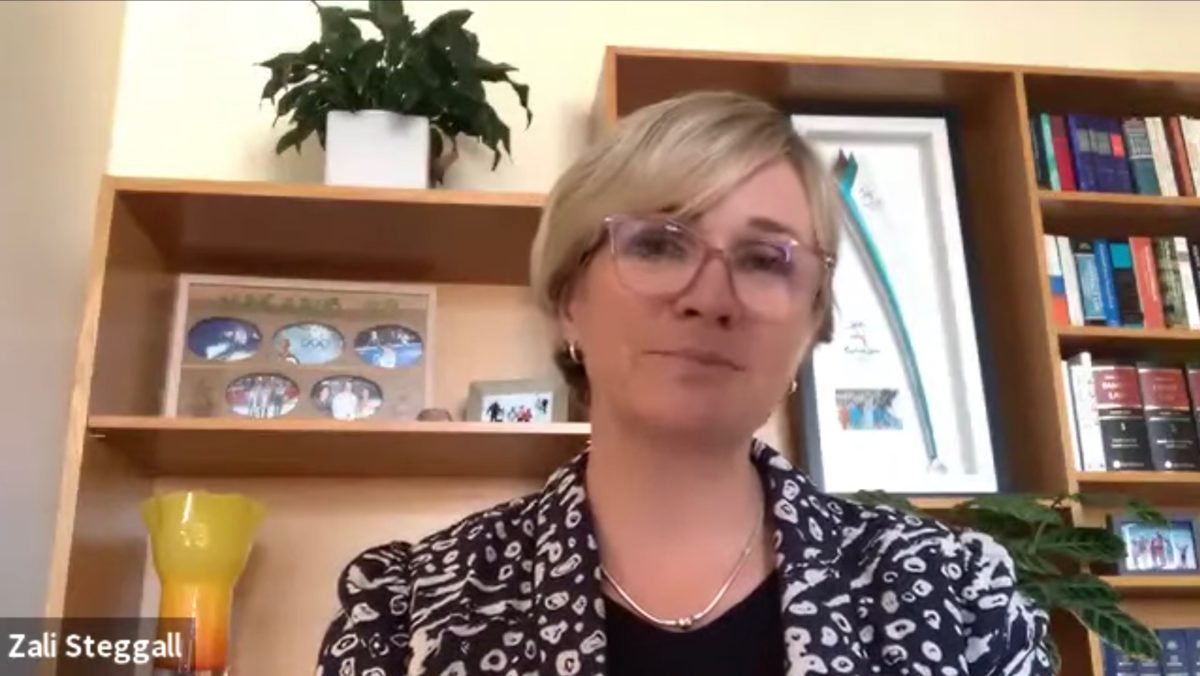The Business Council Australia (BCA), which represents Australia’s largest employers across industries such as energy, mining, retail, banking and manufacturing, has backed Steggall’s proposal, declaring it is a “science-based, risk-management approach” to addressing climate change which aligns with how businesses and their shareholders are responding to climate-related risks.
Steggall’s private members proposal, which was introduced to parliament last year and is now before a parliamentary inquiry, would establish an independent climate change commission and introduce risk assessment and adaptation plans.
The proposal seeks to provide a national, long-term framework for climate change mitigation and adaption which would align federal climate policy with state government and the private sector’s commitment to net-zero emissions by 2050.
In a submission to the parliamentary inquiry of Stegall’s climate action proposal, BCA chief executive Jennifer Westacott wrote the association supports “strong action” on climate change including “setting a national target of net-zero emissions by 2050 and, critically, outlining a pathway to achieve this goal”.
“The high-level policy framework outlined in the proposed legislation represents an important starting point for the development of a clearly defined, nationally guided and co-ordinated climate policy response,” she said.
Westacott said the proposed policy framework provides an architecture which will be critical to mapping out a planned and predictable approach to emissions reduction across the economy as “we work towards the net-zero target in 2050”.
“Having a very clear set of government policy ‘goal posts’ would enable company directors to focus their resources and efforts more efficiently with respect to climate-related transition risks,” she said.
“The proposed legislation adopts a science-based, risk-management approach to addressing climate change (in its objects and other sections) which is aligned with how businesses and their shareholders, increasingly, are responding to climate-related risks.”
Dragging the chain
The Federal Government has repeatedly ruled out committing to a 2050 net-zero emissions target despite international pressure to do so, saying it expects the country to reach the milestone in the second half of the 21st century.
Minister for Emissions Reductions Angus Taylor said in November that reaching net zero by 2050 “will destroy jobs, that will require taxes, that will impose costs on Australian energy consumers and raise the price of electricity”.
Steggall however said there is widespread support in the Australian community for a clear, science-based pathway to net zero.
The BCA’s submission is one of more than 6500 submissions to the inquiry and Steggall said the influx shows how broad the support is for a sensible plan to tackle emissions reduction and management of climate change risk.
“The world is heading to net zero by 2050 … it’s time Prime Minister Scott Morrison sets Australia on the right path,” she said.
“Dragging this out and delaying significant emissions reduction will only cost more and increase risks to our communities. This comes as the Coalition is once again hampered by internal party politics and its climate denying members.
“The inquiry’s two public hearings offer a significant opportunity for the public to hear from the private and public sectors on how climate change will affect our everyday lives and future, isolated from political games or election campaigns. As we have seen in the UK, climate change policy can be bipartisan.”
The two public hearings of the inquiry will be held on Friday, January 29 and Monday, February 1.
This content is protected by copyright and may not be reused. If you want to cooperate with us and would like to reuse some of our content, please contact: editors@pv-magazine.com.









By submitting this form you agree to pv magazine using your data for the purposes of publishing your comment.
Your personal data will only be disclosed or otherwise transmitted to third parties for the purposes of spam filtering or if this is necessary for technical maintenance of the website. Any other transfer to third parties will not take place unless this is justified on the basis of applicable data protection regulations or if pv magazine is legally obliged to do so.
You may revoke this consent at any time with effect for the future, in which case your personal data will be deleted immediately. Otherwise, your data will be deleted if pv magazine has processed your request or the purpose of data storage is fulfilled.
Further information on data privacy can be found in our Data Protection Policy.